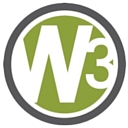I couldn’t believe it with my own eyes. I was looking for a way to give context to Facebook and a good overview to start developing a Social Media business marketing strategy with Facebook as one aspect of it. So, I used Google’s “define” search function for “Facebook” and, lo and behold, Dictionary.com had an entry, and as you can see from above, it’s pretty accurate for consumers. The external social networking service founded by Mark Zuckerberg in 2004 generally captures the people-spying-on-people mentality that pervades much of social networks. However, there’s more to the Social Media platform than meets the eye for businesses, and I’ll be blogging regularly about the many facets of the global social networking juggernaut. First, I’d like to just give a few definitions to cover some of the regular terms that define Facebook for small business.
PROFILES
The bottom line as to whether you use a Profile or Group for your business’ Facebook presence: never. I know that some will relent and give me all the reasons that their particular reasoning for using their Profile or a Group that they’ve set up for their business is better than setting up a Page. And, some will not that Facebook themselves made Pages as a second thought for businesses. My hope is that by explaining some key features of Pages and key disadvantages of Groups and Profiles, that you’ll go ahead and take the effort to launch your business’ Facebook Page in the not-too-distant future and then try to do away with your other Facebook presence as soon as practicable.
GROUPS
Facebook Groups are wonderful tools but for small communities within Facebook, such as committees, focus groups, boards, and groups of friends. Although it may be tempting to create a Group because you’ve heard of the few “advantages” over Pages, we highly dissuade you from thinking this is true. While you can send messages directly to members of groups, member engagement is higher in groups thanks to generally smaller size, and the discussion thread feature set, Groups are missing the core extensibility of Pages–Applications, analytics and Web coding functionality. Over time, Facebook engagement will be completely about the functionality of your Pages as much as they are about the content you offer.
PAGES
Facebook Pages are the de facto home for businesses and brands on Facebook. Every business should stake their claim to their Facebook Page (especially if you have a retail location). Facebook Ads and ad networks allow you to direct traffic to Facebook Pages, you can have unlimited fans following your Page, and users associate Pages with companies they like and trust. Every business’ marketing needs are different on Facebook, so research your target market well in a variety of Social Media before leaping in headfirst.
Facebook, no matter how you define it, is a commitment to Social Media that warrants close and careful contemplation. There’s no question that your target market is there; with 600 million users and counting, everyone’s target market in the United States is likely there. But, will they pay attention to your brand message while engaging on the platform? That’s the question you have to ask.
—
Still have questions? Ask them in the comments and I’ll be happy to post video responses to my Vimeo account and post them here in the Comments for you.

